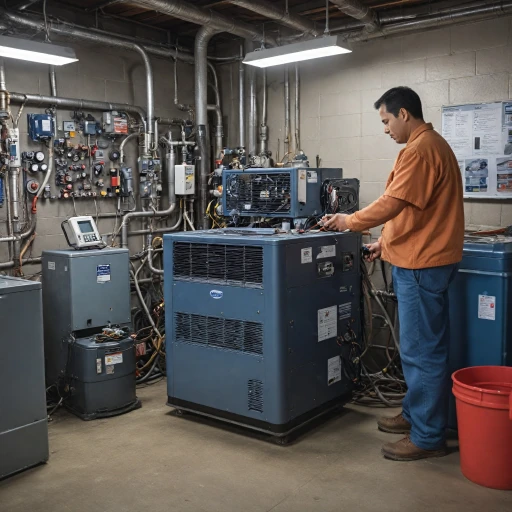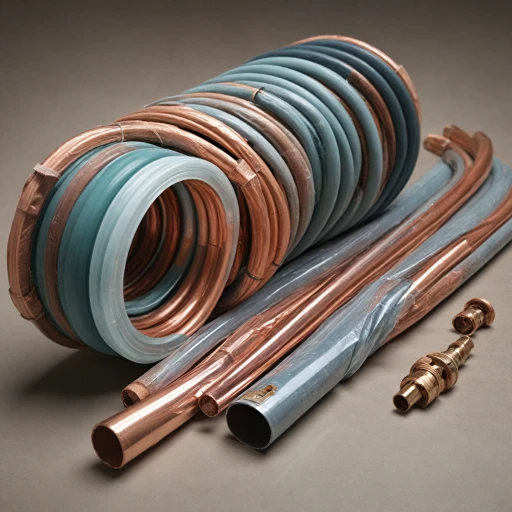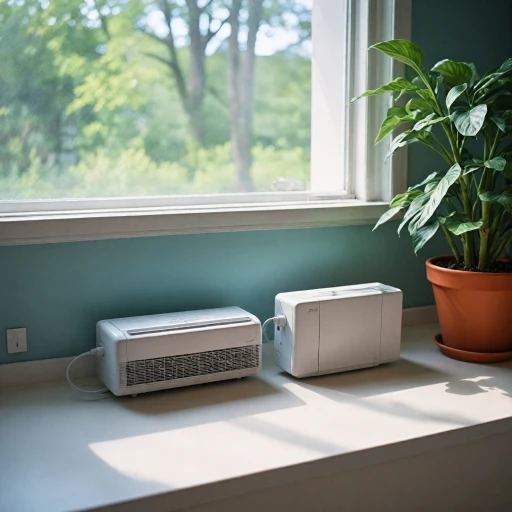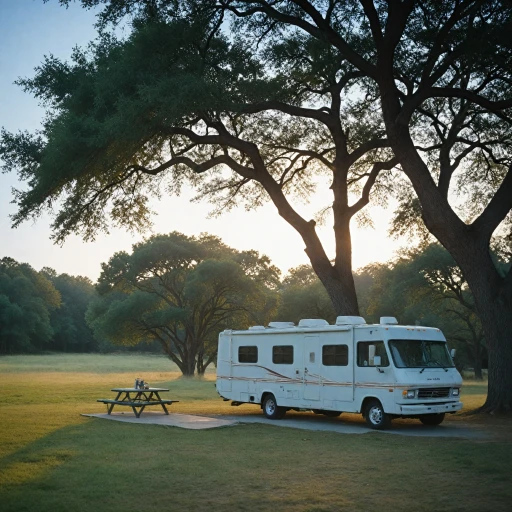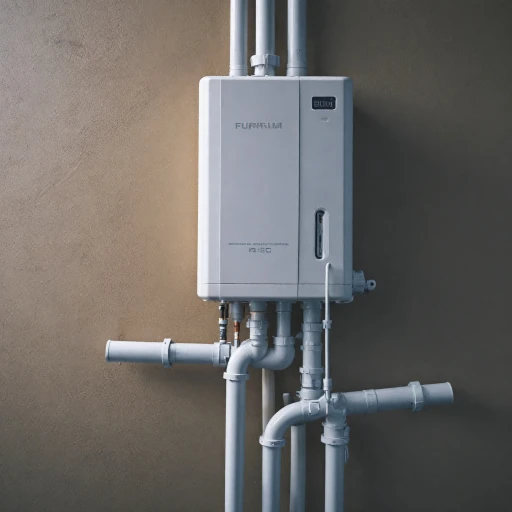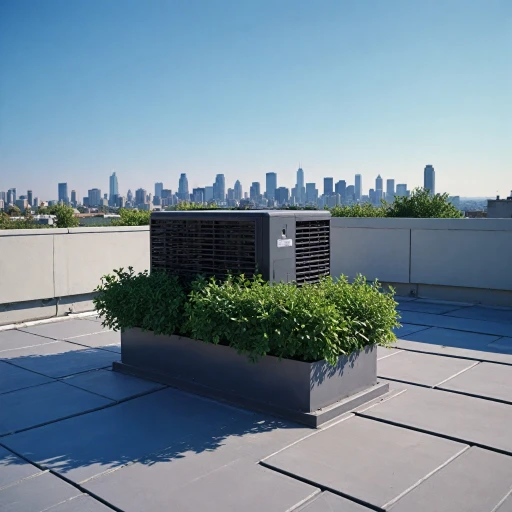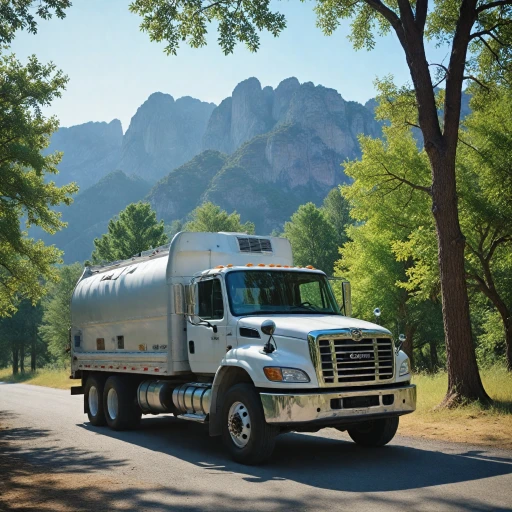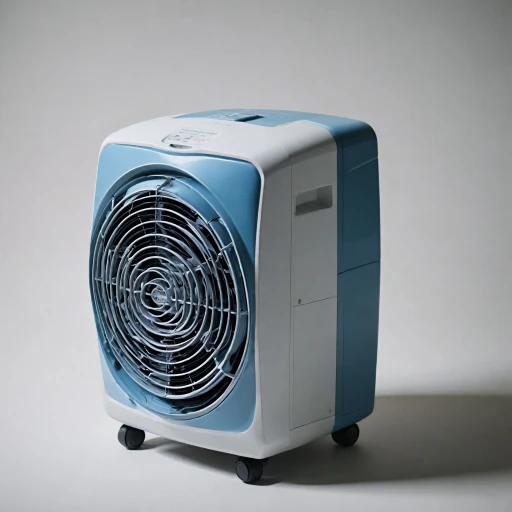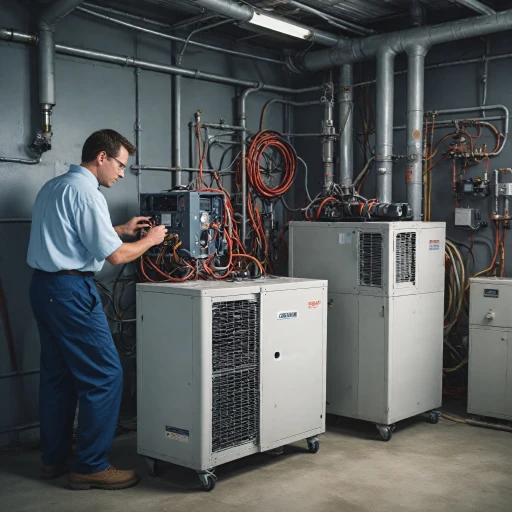
Understanding Mobile Home Cooling Needs
Identifying the Distinct Cooling Needs of Mobile Homes
Mobile homes present unique challenges when it comes to maintaining a comfortable living environment. These homes are designed for mobility and typically include compact spaces, which means choosing the right air conditioner requires some specific considerations. Understanding these needs is crucial to selecting a cooling solution that is both efficient and effective.
Efficient cooling is essential in mobile homes due to their lightweight construction and lower insulation levels. This design can cause rapid temperature fluctuations, making an efficient air conditioning solution invaluable for maintaining a stable indoor climate. Whether you are stationary or on the road, addressing these cooling needs ensures comfort and energy efficiency.
Mobile homes often function as both primary residences and travel accommodations, requiring flexible solutions like portable units. These units should be powerful enough to handle varying climates while being compact and easy to store. Moreover, understanding the energy efficiency ratings, such as the seasonal energy efficiency ratio (SEER), is vital. The higher the home SEER, the more energy-efficient the unit, potentially leading to reduced energy costs over time.
This section only scratches the surface. There's much more to explore, including different types of mobile home AC units and essential features to consider to tailor your choice to specific needs. You’ll find guidance on choosing the right product that qualifies for free shipping and possibly avoids area surcharges that can apply to remote curbside delivery options.
Types of Mobile Home AC Units
Exploring AC Options for Mobile Homes
When it comes to air conditioning units specifically designed for mobile homes, there are several options one can consider. It's crucial to evaluate these efficiently to ensure optimal performance and cost-effectiveness. Not all units are created equal, so understanding the differences can significantly impact comfort and energy savings.Portable Air Conditioners
Portable air conditioners stand out for their flexibility and ease of installation, often shipped as ready-to-use products and, in many cases, qualify for free shipping options. These units are ideal for areas requiring temporary cooling solutions and can be moved from one room to another with minimal effort. They typically utilize a single or dual hose system for air circulation.Mini-Split Systems
Mini-split systems are another efficient choice, offering a high SEER (Seasonal Energy Efficiency Ratio) rating, which impacts energy efficiency and potential cost savings. Known for their quiet operation, these systems often require professional installation but provide superior cooling performance. If you're considering this option, it's worth exploring efficient cooling systems for RVs to understand their potential benefits better.Window Units
For those on a budget, window air conditioner units remain a traditional and accessible choice, excellent for cooling smaller areas. However, they may not qualify for the same free shipping policies as portable units, and additional area surcharges might apply for remote locations. Understanding these types of units and assessing the best fit for your mobile home is integral to maximizing your investment. Factors such as installation requirements, shipping policies, and energy efficiency should guide your decision-making process, ensuring a comfortable and cost-effective cooling solution for your home.Key Features to Consider
Key Factors for Selecting Mobile AC Units
It's important to identify what features are crucial when choosing an air conditioner for your mobile home. Here’s a comprehensive breakdown to assist in making an informed decision.
- Energy Efficiency: The efficiency of an air conditioner is paramount, especially in mobile homes, where power sources may be limited. Opting for units with a high SEER (Seasonal Energy Efficiency Ratio) rating will ensure energy savings and reduced operating costs.
- Cooling Capacity: Measured in tons, cooling capacity indicates how much heat the unit can remove from a space. Ensure the product qualifies based on the size of your mobile home. A revolv ton air conditioner might be ideal for larger spaces.
- Portability and Installation: Units must be easily transportable and installed without needing significant modifications. Some models may require a lift gate or ground curbside delivery, so be sure to review the shipping policy to avoid unexpected area surcharges in remote areas.
- Noise Levels: Quiet operation is often preferred in small living spaces to ensure comfort. Consider units that keep noise to a minimum while providing efficient cooling.
- Control Features: Look for units with smart features such as remote access, programmable thermostats, and multi-stage refrigerant controls. The simpler the control, the more convenient it will be to manage your home’s climate.
Moreover, some products offer free shipping or qualifications for curbside delivery, which reduces costs related to having large items lbs shipped, possibly by a semi truck to a contiguous location.
For a detailed guide on maintaining your AC units, understanding essential cooling parts and tips on refilling your AC can prolong the lifespan of your cooling system.
Installation and Maintenance Tips
Mastering Installation and Maintenance of Your Mobile Home Air Conditioner
When it comes to setting up a portable air conditioner in a mobile home, there are a few key considerations to ensure your unit performs optimally. Firstly, understanding the weight or size of the unit is crucial, especially if you plan to move it frequently. Look for units that offer a lift gate or ground curbside delivery to ease the process of installation, especially for heavier items around 150 lbs or more. These units often qualify for free shipping, depending on the shipping policy and your location in the contiguous areas.
Once your air conditioner is delivered, positioning plays a significant role. A poorly placed unit could result in inefficient cooling, therefore, locate a central spot that allows maximum airflow without obstruction. Products like the Revolv ton air conditioners could be ideal if you're looking for powerful, reliable options often with multiple stages of refrigerant for flexibility.
Regular maintenance is equally significant. Establish a routine check-up to ensure your conditioner continues to work efficiently. Check and clean the filters to prevent clogging which can strain the unit, reducing its performance. Moreover, familiarize yourself with the unit's SEER ratings, which indicate the efficiency of the air conditioner over a typical cooling season. A higher SEER means more energy efficiency.
Also, be aware of any additional costs associated with maintenance and operation. This includes potential surcharges for remote areas or items that exceed the standard weight limit for typical shipping methods. It's advisable to thoroughly review the product's warranty and service agreements for any details regarding cost and repairs.
Lastly, proper seasonal storage is necessary if you're not using the air conditioner year-round. While some units may be truck or semi-truck compatible, careful handling and storage as per the manufacturer's guidelines will prolong the life of your air conditioner and maintain its efficiency level in your home.
Cost and Budget Considerations
Budgeting for Your Mobile Home Cooling
When considering an air conditioner for your mobile home, cost and budget considerations are crucial. The price of an AC unit can vary widely based on several factors, including the type of unit, its efficiency, and additional features.
Initial Purchase and Installation Costs
- Unit Price: The cost of mobile home air conditioners can range from a few hundred to several thousand dollars. Units like the Revolv ton models may offer a balance between price and efficiency.
- Installation: Installation costs can add significantly to your budget. Some units might require professional installation, which could involve extra charges for lift gate service or delivery by semi truck if the product is shipped from a remote area.
- Shipping: Be aware of the shipping policy details. Some products qualify for free shipping, but others might apply full shipping costs, especially if they are heavy items (e.g., over 100 lbs) or shipped to contiguous areas.
Ongoing Expenses
- Energy Efficiency: The SEER (Seasonal Energy Efficiency Ratio) of an air conditioner affects ongoing energy costs. A higher SEER rating, like a home SEER single-stage refrigerant model, usually means lower energy bills.
- Maintenance: Regular maintenance is essential to keep your AC running efficiently. Factor in costs for potential repairs or part replacements.
- Area Surcharges: If you live in a remote area, additional surcharges might apply for maintenance services.
Maximizing Value
To get the most out of your investment, consider units that qualify for energy rebates or tax credits. Research products that offer the best balance between upfront costs and long-term savings. Always write a review to share your experience and help others make informed decisions.
Top Mobile Home AC Units on the Market
Leading Choices for Mobile Home Air Conditioning
Investing in the right air conditioner for your mobile home is pivotal for maintaining comfort during hot months. Here, we break down some of the top choices currently dominating the market, each offering various benefits to meet diverse cooling requirements.- Revolv 2 Ton System
- Offers efficient cooling with a 16 SEER single stage refrigerant system, ensuring minimal energy costs while maintaining optimal temperature.
- This product qualifies for free shipping when shipped within the contiguous U.S., with available options for ground curbside delivery.
- Detailed policy details apply for remote area surcharges. Make sure to check the full shipping policy.
- High SEER Mini-Split Units
- Mini-split air conditioners are a versatile option, providing both cooling and heating. They lift the value of your mobile home by providing efficient climate control.
- With these units, there’s no need for extensive ductwork, which is ideal for mobile homes with limited space.
- Installation is straightforward, often avoiding the need for a semi truck or larger vehicle for delivery.
- Portable Air Conditioners
- Popular for their maneuverability and ease of installation. These conditioners can be moved with ease, thanks to lightweight builds and convenient lift gate delivery options.
- Ideal for mobile homes where installation flexibility and portable use are paramount.
- Often shipped semi-assembled, which simplify the installation process.
- Central Air Conditioning Systems
- While more permanent, central systems provide uniform cooling across the entire home.
- These systems typically require professional installation, so it's essential to consider the additional cost and curbside shipping specifications.
- Despite higher initial costs, the long-term efficiency and comfort benefits make them a viable option for long-term mobile home residents.



